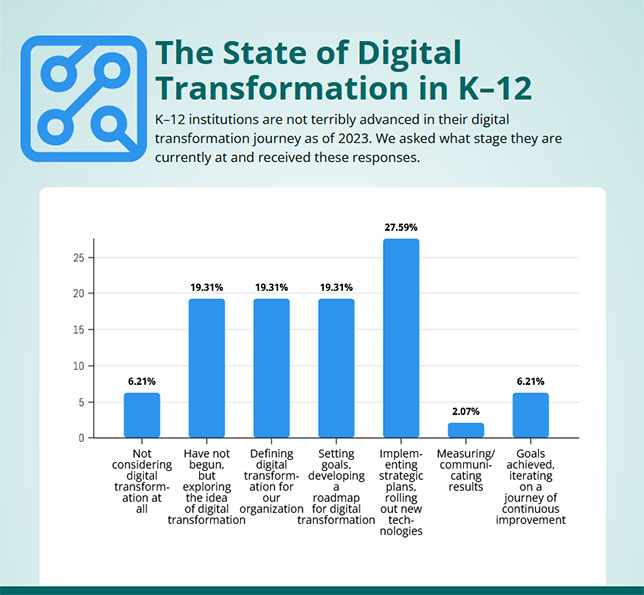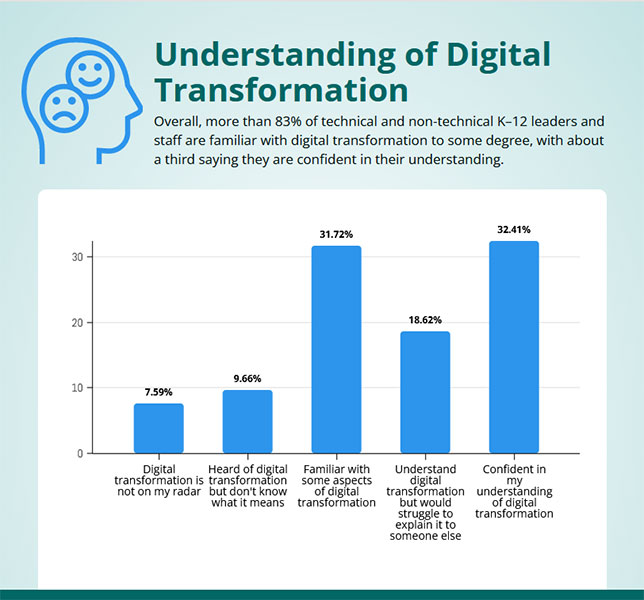Most Districts Still Early in Their Digital Transformation Journey
Digital transformation is still largely in its infancy in K–12 schools and districts.
According to the 2023 THE Journal Digital Transformation Survey, nearly two-thirds of respondents said they have not yet begun to implement their strategies or roll out technologies as part of their transformation.
Overall, 6.21% said they are not considering digital transformation at their institution at all, while 19.31% said they have not started but are exploring the idea of digital transformation. Another 19.31% said they are in the process of defining digital transformation for their organizations. And 19.32% also said they are currently setting goals and designing a roadmap for their digital transformation.
In total, about 36% are in some stage of implementation: 27.59% are implementing their strategies and rolling out technologies; 2.07% are measuring results; and 6.21% said their institutions' goals have been achieved and are currently iterating on a journey of continuous improvement.

That said, overall, only about a third of respondents (32.41%) overall said they are confident in their understanding of digital transformation. Among non-IT leaders, that figure drops to 16.67%. Among IT leaders, it jumps to 57.89%.
Another 18.62% overall said they understand digital transformation but would struggle to explain it to others. And 31.72% said they are familiar with some aspects of digital transformation.

The Digital Transformation Survey was conducted by THE Journal from March 2023 to June 2023 and included 237 responses from schools and districts around the country. Among respondents, 84.39% were from public institutions, with 21.1% at the district level, and the remainder in combined K–12 institutions (15.61%), high school (25.32%), combined secondary (3.38%), middle school (10.13%), elementary school (16.88%), and the remainder in PreK, alternative, or other types of institutions, such as combined K–8.